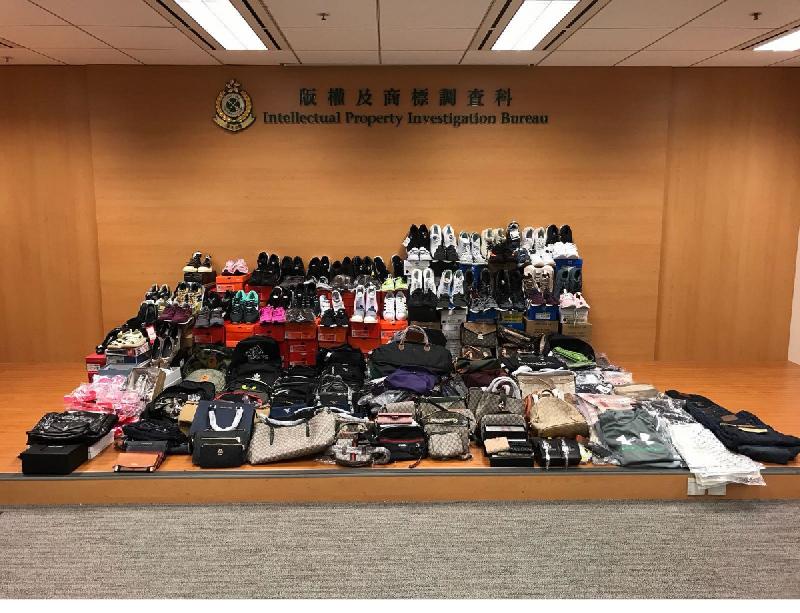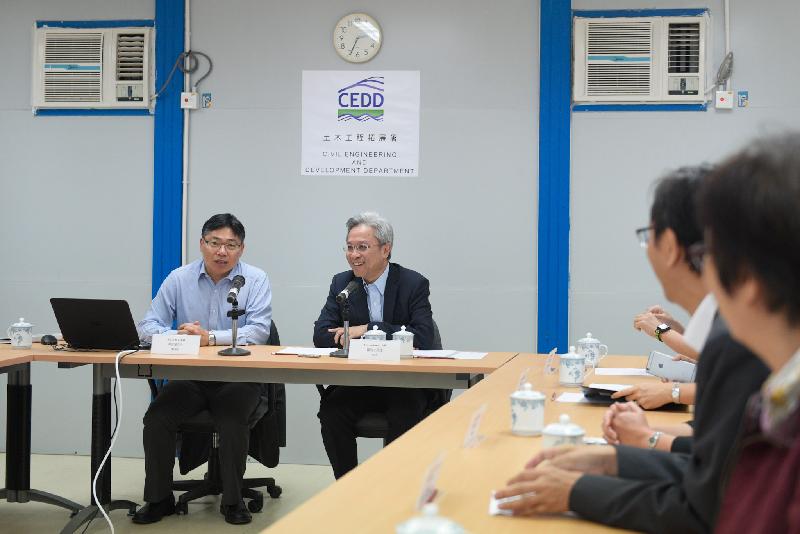The Centre for Health Protection (CHP) of the Department of Health today (August 13) reported the latest number of cases of Legionnaires’ disease (LD), and stressed the importance of using and maintaining properly designed man-made water systems, and that susceptible groups should strictly observe relevant precautions.
From August 5 to 11, four community-acquired LD cases were reported. They are:
- A female patient, aged 83 with underlying illnesses, who lives in Block A, Kiu Kwun Building, 395 King’s Road, North Point;
- A male patient, aged 69 with underlying illnesses, who lives in Wo Tung House, Cheung Wo Court, Kwun Tong;
- A male patient, aged 73 with underlying illnesses, who lives in Kai Fai House, Choi Wan (II) Estate, Wong Tai Sin; and
- A male patient, aged 85 with underlying illnesses, who lives in Block 10, Flora Plaza, 88 Pak Wo Road, Fanling.
“Epidemiological investigations are ongoing to identify potential sources of infection, high-risk exposure and clusters, if any,” a spokesman for the CHP said.
As of August 11, 55 LD cases have been reported in 2018. In 2017 and 2016, there were 72 and 75 cases respectively.
“Men, people aged over 50, smokers, alcoholics and persons with weakened immunity are more susceptible to LD. Some situations may also increase the risk of infection, including poor maintenance of water systems leading to stagnant water; living in areas with old water systems, cooling towers or fountains; using electric water heaters, whirlpools and spas or hot water spring spas; and recent stays in hotels or vessels,” the spokesman said.
Legionellae are found in various environmental settings and grow well in warm water (20 to 45 degrees Celsius). They can be found in aqueous environments such as water tanks, hot and cold water systems, cooling towers, whirlpools and spas, water fountains and home apparatus which support breathing. People may get infected when they breathe in contaminated droplets (aerosols) and mist generated by artificial water systems, or when handling garden soil, compost and potting mixes.
Immunocompromised persons should:
- Use sterile or boiled water for drinking, tooth brushing and mouth rinsing;
- Avoid using humidifiers, or other mist- or aerosol-generating devices. A shower may also generate small aerosols; and
- If using these devices, fill the water tank with only sterile or cooled freshly boiled water, and not tap water. Also, clean and maintain them regularly according to manufacturers’ instructions. Never leave stagnant water. Empty the water tank, wipe all surfaces dry, and change the water daily.
The public should observe the health advice below:
- Observe personal hygiene;
- Do not smoke and avoid alcohol;
- Strainers in water taps and shower heads should be inspected, cleaned, descaled and disinfected regularly or at a frequency recommended by the manufacturer;
- If a fresh water plumbing system is properly maintained, it is not necessary to install domestic water filters. Use of water filters is not encouraged as clogging occurs easily, which can promote growth of micro-organisms. In case water filters are used, the pore size should be 0.2 micrometres (µm) and the filter needs to be changed periodically according to the manufacturer’s recommendations;
- Drain and clean water tanks of buildings at least quarterly;
- Drain or purge for at least one minute the infrequently used water outlets (e.g. water taps, shower heads and hot water outlets) and stagnant points of the pipework weekly or before use;
- Seek and follow medical advice regarding the use and maintenance of home respiratory devices and use only sterile (not distilled or tap) water to clean and fill the reservoir. Clean and maintain them regularly according to the manufacturer’s instructions. After cleaning/disinfection, rinse the device with sterile water, cooled freshly boiled water or water filtered with 0.2-µm filters. Never leave stagnant water. Empty the water tank, keep all surfaces dry, and change the water daily; and
- When handling garden soil, compost and potting mixes:
1. Water gardens and compost gently using low pressure;
2. Open composted potting mixes slowly and make sure the opening is directed away from the face;
3. Wet the soil to reduce dust when potting plants; and
4. Avoid working in poorly ventilated places such as enclosed greenhouses.
The public may visit the CHP’s
LD page, the
Code of Practice for Prevention of LD and the
Housekeeping Guidelines for Cold and Hot Water Systems for Building Management of the Prevention of LD Committee, and the CHP’s
risk-based strategy for prevention and control of LD.
read more



